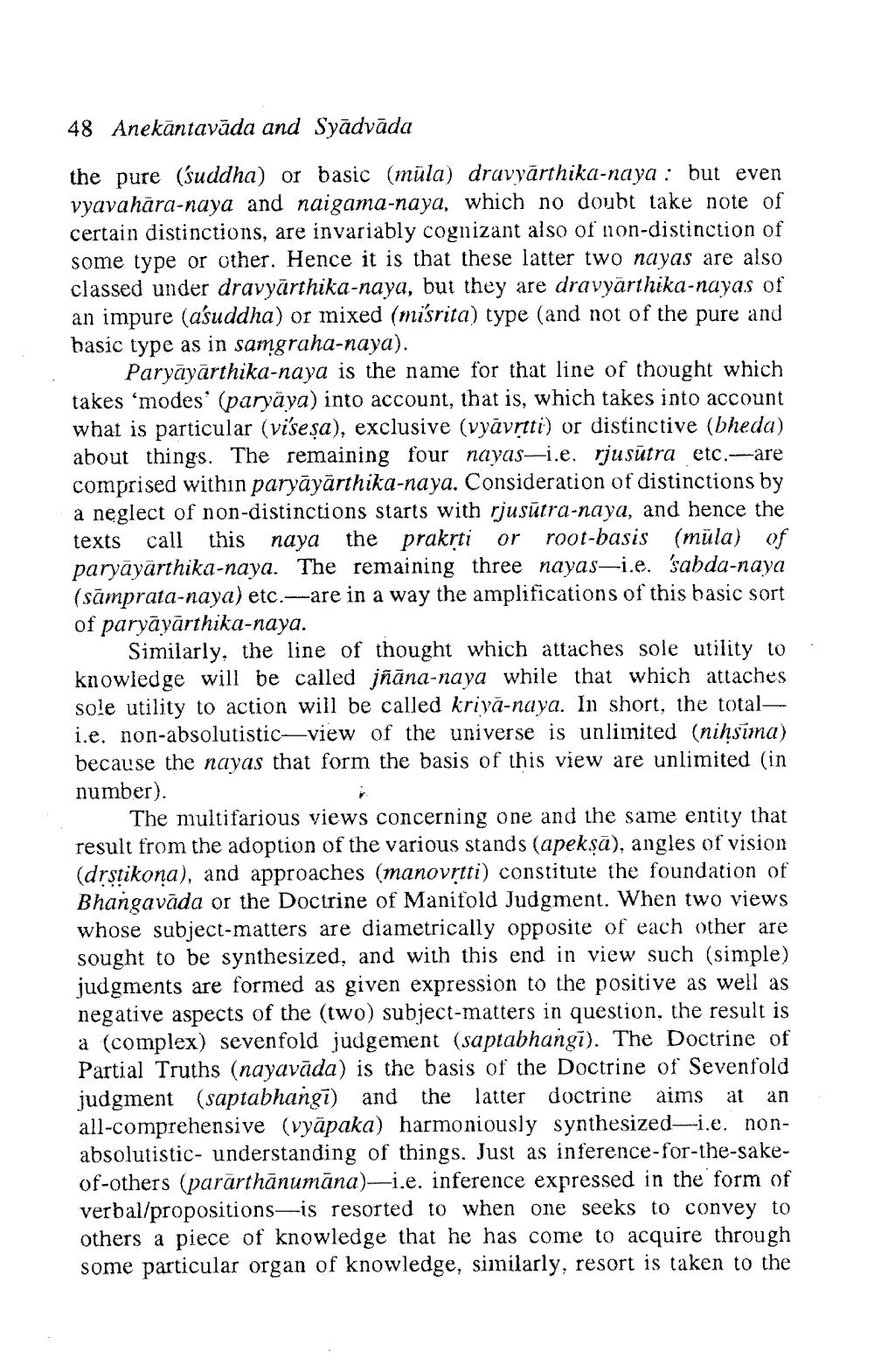________________
48 Anekāntavāda and Syādvāda the pure (suddha) or basic (müla) dravyārthika-naya : but even vyavahāra-naya and naigama-naya, which no doubt take note of certain distinctions, are invariably cognizant also of non-distinction of some type or other. Hence it is that these latter two nayas are also classed under dravyārthika-naya, but they are dravyārthika-nayas an impure (asuddha) or mixed (misrita) type (and not of the pure basic type as in samgraha-naya).
Paryāyārthika-naya is the name for that line of thought which takes ‘modes (paryāya) into account, that is, which takes into account what is particular (vi'sesa), exclusive (vyāvstti) or distinctive (bheda) about things. The remaining four nayas-i.e. rjusūtra etc.-are comprised within paryāyārthika-naya. Consideration of distinctions by a neglect of non-distinctions starts with rjusūtra-naya, and hen texts call this naya the prakrti or root-basis (müla) of paryāyārthika-naya. The remaining three nayas-ie. sabda-naya (samprata-naya) etc.-are in a way the amplifications of this basic sort of paryāyārthika-naya.
Similarly, the line of thought which attaches sole utility to knowledge will be called jñāna-naya while that which attaches sole utility to action will be called kriya-naya. In short, the total - i.e. non-absolutistic-view of the universe is unlimited (nihsina) because the nayas that form the basis of this view are unlimited (in number).
The multifarious views concerning one and the same entity that result from the adoption of the various stands (apeksā), angles of vision (drstikona), and approaches (manovrtti) constitute the found Bhangavāda or the Doctrine of Manifold Judgment. When two views whose subject-matters are diametrically opposite of each other are sought to be synthesized, and with this end in view such (simple) judgments are formed as given expression to the positive as well as negative aspects of the (two) subject-matters in question, the result is a (complex) sevenfold judgement (saptabhangī). The Doctrine of Partial Truths (nayavāda) is the basis of the Doctrine of Sevenfold judgment (saptabhangi) and the latter doctrine aims at an all-comprehensive (vyāpaka) harmoniously synthesized-i.e. nonabsolutistic- understanding of things. Just as inference-for-the-sakeof-others (pararthānumāna)—i.e, inference expressed in the form of verbal/propositions—is resorted to when one seeks to convey to others a piece of knowledge that he has come to acquire through some particular organ of knowledge, similarly, resort is taken to the




